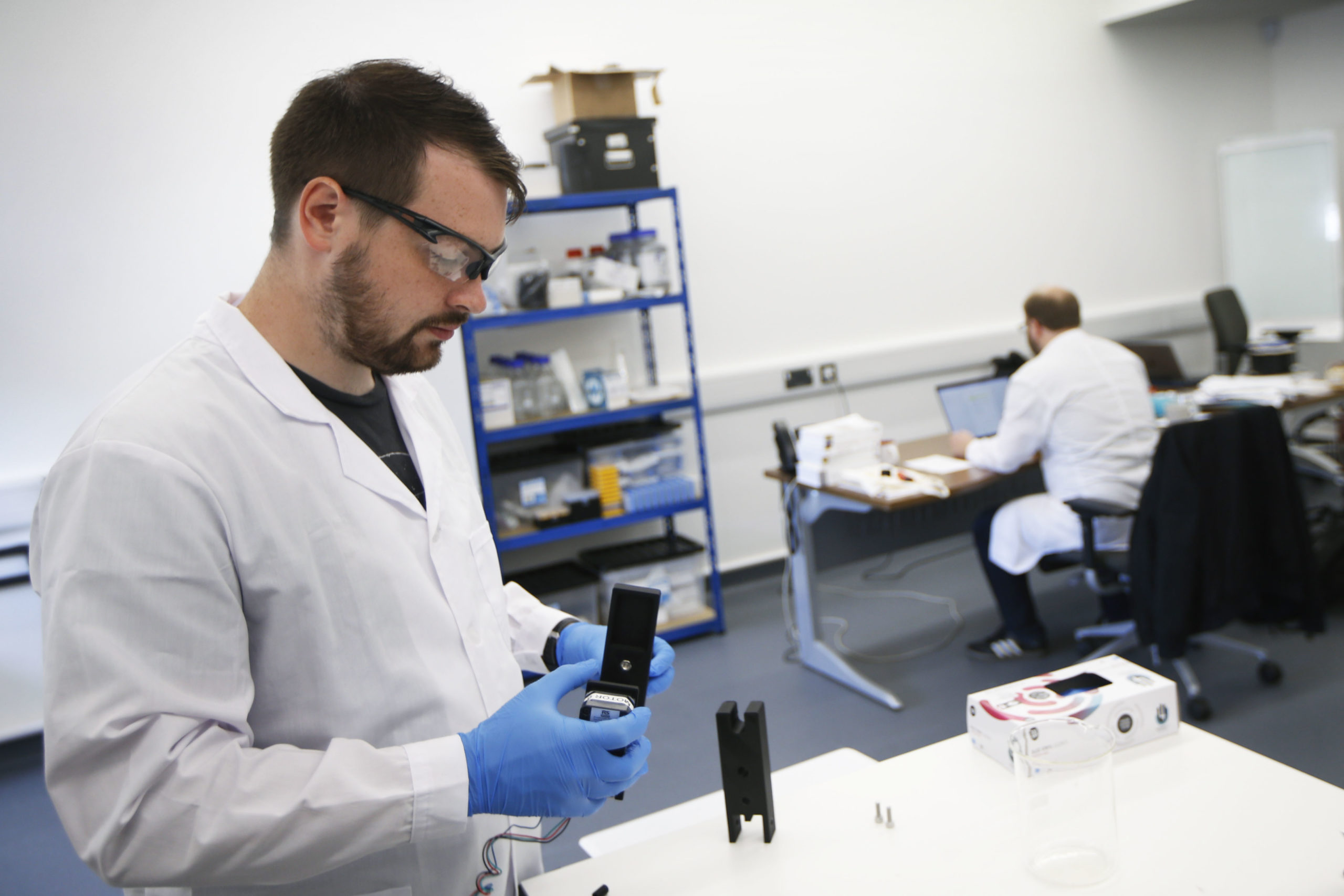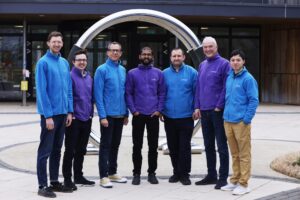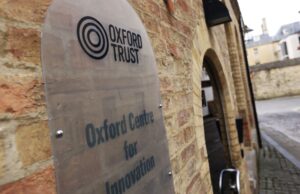Five minutes with Alex Greenhalgh at Spintex
August 6, 2020

We had five minutes with Alex Greenhalgh, CEO and co-founder of Spintex – a brilliant new business developing artificially spun silk.
New start-up, Spintex uses a spider-inspired spinning process to develop artificially spun high-performance silk. The process they use is called “pultrusion”. As Alex says, the idea is “backed by 300 million years of R&D”. Not many businesses can make that claim! Just as the spider, the raw materials are protein and water and the pultrusion process expels the water that makes the silk protein microfibres align to produce a low-energy, high-quality fibre.
“Traditional silk production has the second highest environmental impact after leather” says Alex. “What’s unique about Spintex’s process is that it is incredibly environmental”. Unlike the traditional silk industry, energy consumption is low, water is the only by-product, there are no hazardous chemicals, and everything can potentially be recycled. Using biomimicry, or learning from nature, Spintex has turned the ancient silk manufacturing process on its head by rethinking production models. How cool is that?
The resulting Spintex material compares well with natural silks and nylons – it is tough, light, malleable and fine. It has potential for use in the sustainable fashion industry and because of its high performance can also be used in other markets. “We hope it will be used for advanced technical textiles and even for regenerative medicine” says Alex.
Alex and his co-founders, Martin Frydrych (CSO) and Fritz Vollrath, were researchers in University of Oxford’s Zoology Department. The team is backed by a strong advisory board, including scientific advisor, Chris Holland and IP advisor, Robert Harrison. Alex and Martin met working on the European Commission funded FLIPT project that was looking at ways to spin cellulose like a silk using biomimicry. They developed an in-depth knowledge of the spider’s spinning process and realised the commercial potential of replicating this. Originally, they set up Spintex to create medical textiles but were held back by the regulatory process. It was joining the Fashion for Good accelerator that propelled them into sustainable fashion and they’ve never looked back.
Alex is Oxford born and bred and took to science early on in life. In fact, as a teenager, he won a Nuffield Foundation Bursary in microbiology through Science Oxford (which we ran from 1998 to 2014). What do we say we’re trying to do? Inspire the next generation of scientist and innovators…..
Spintex is a winner of an impressive list of grants and awards – including an EU Horizon 2020 grant, the Panacea Stars 2019 Develop programme winners, Fashion for Good accelerator graduates, and investment from the IndieBio SOSV accelerator and the Startup Funding Club.
Spintex does have competitors – Bolt Threads (USA); AMSilk (Germany); and Spiber (Japan) but they are the only company using a non-bioreactor, pultrusion technology which gives them greater environmental credentials and reduced costs.
Aside from COVID-19, which has slowed down their development timeline, Spintex has some key challenges for 2020: to fine-tune the engineering process, another funding round, to further reduce costs to competitive levels and to scale-up. We have no doubt they are up to the challenge. Good luck, Spintex. We are pleased to have you join our science and tech community at the Wood Centre for Innovation at Stansfeld Park.
If you want to find out more about, Spintex or contact Alex, see here.




